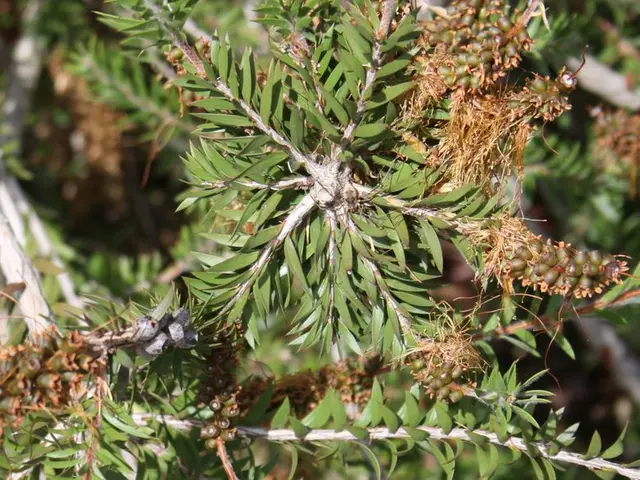Reinforcing Your Garden: A Comprehensive Guide to Boosting Soil Nitrogen Levels
Nitrogen is a vital component for the growth of plants in a home garden, aiding in photosynthesis and the production of proteins. While the air around us contains nitrogen, most plants cannot utilize it efficiently. Instead, they rely on nitrogen obtained from the soil. However, not all soils are nitrogen-rich, and an unattended garden soil can deplete its nitrogen content over time. To maintain a thriving garden, gardeners should manage the nitrogen levels in their soil. Here are several approved methods by experts to add nitrogen to your garden soil for robust and productive plants.
Aaron Steil, a consumer horticulture extension specialist at the Iowa State University Extension and Outreach, recommends several techniques to enhance the nitrogen content in your soil:
- Composting: Compost, a combination of carbon-rich brown material and nitrogen-rich green material, is a reliable way to boost nitrogen levels in the soil. Organic matter, such as compost, provides essential nutrients for plants, including nitrogen, and improves the soil's structure, making it more accessible for water and air, thus promoting healthy root growth.
- Crop Rotation with Legumes: Legumes, such as alfalfa, peas, and beans, are effective at replenishing soil nitrogen. These plants, known as 'nitrogen fixers,' have microorganisms called rhizobia bacteria in their roots, which convert atmospheric nitrogen into nitrogen compounds beneficial for plants.
- Grass Clippings: Returning grass clippings to the lawn by using a mulching mower can help reduce fertilizer needs, providing up to a quarter of the nitrogen required for a healthy lawn. Simply adding grass clippings to your compost pile as nitrogen-rich green material is another useful method. Just ensure the clippings don't contain weeds when added to the garden.
- Applying Fertilizer: Compost alone might not provide all the nitrogen necessary for plants to maintain good health and productivity. In such cases, Steil suggests supplementing with traditional or natural fertilizers like blood meal or fish emulsion, depending on the results of a soil test.
- Multiple Solutions: The synergistic effect of multiple solutions is often more fruitful than a single option. Austin, a gardening instructor and fifth-generation farmer, recommends maintaining soil nitrogen levels by incorporating compost, crops with legumes, and organic fertilizers as needed.
By employing these strategies and best practices, gardeners can create a soil ecosystem that fosters healthy plant growth while minimizing environmental impact.
Martha Stewart, a renowned personality in home-and-gardening, emphasizes the significance of maintaining proper nitrogen levels in gardens for optimal plant growth. By incorporating methods such as composting, crop rotation with legumes, intensive use of grass clippings, and careful application of fertilizers, gardeners can boost nitrogen content in soil, thereby contributing to a thriving garden lifestyle.








